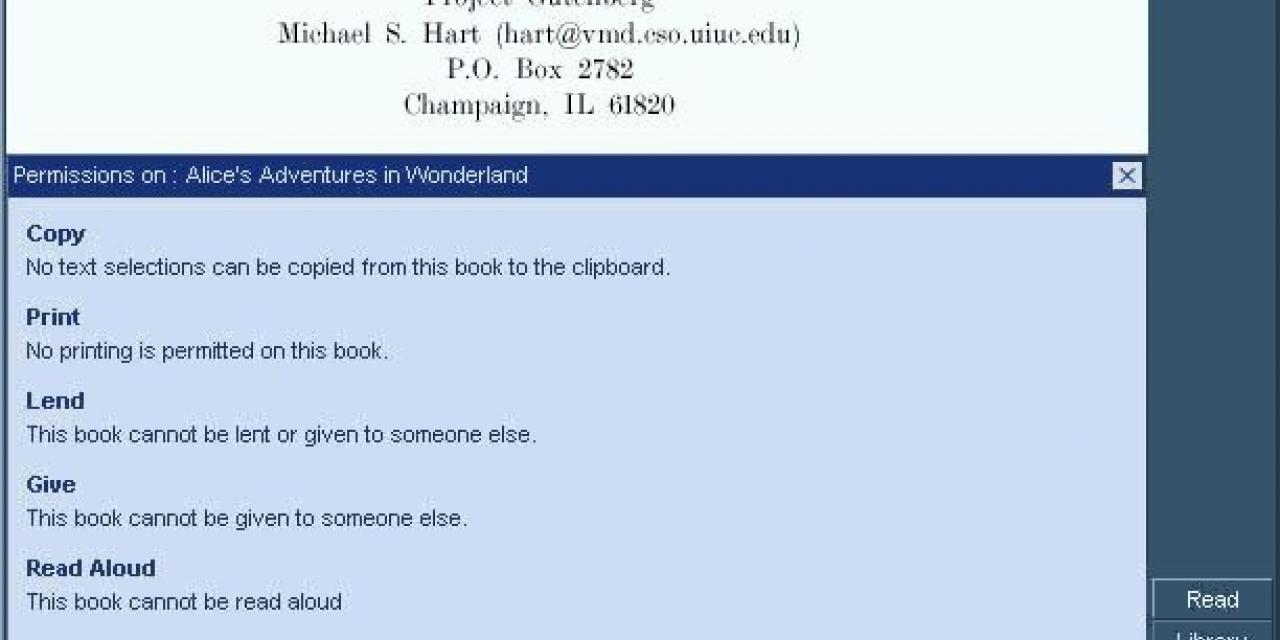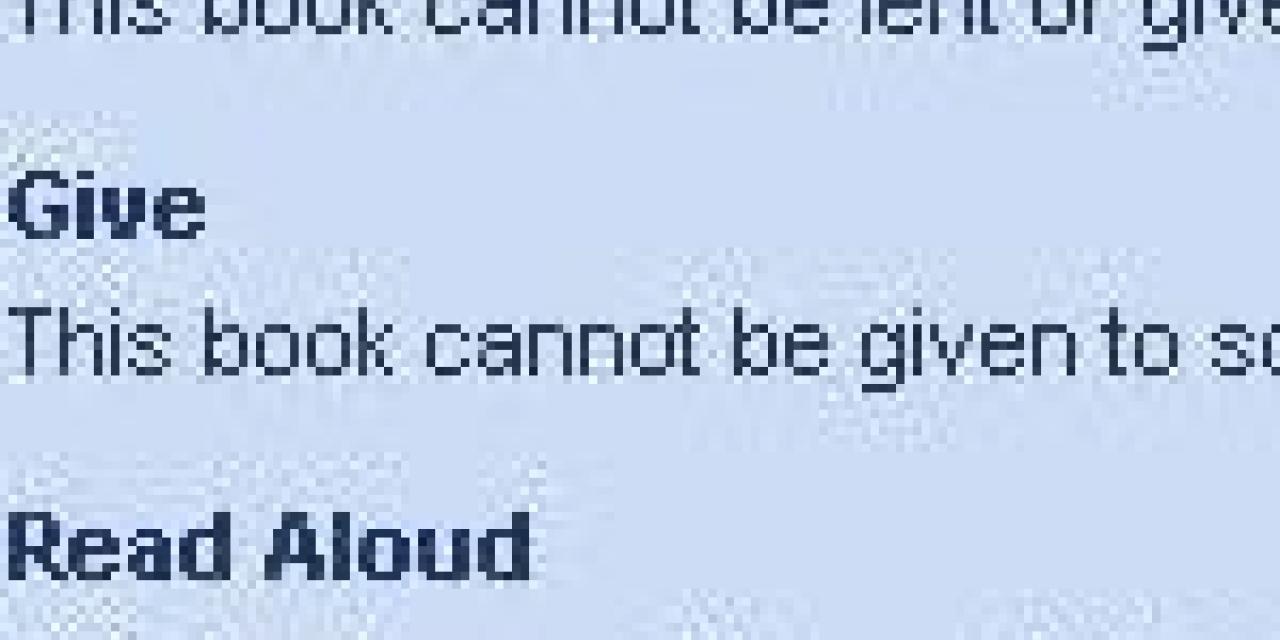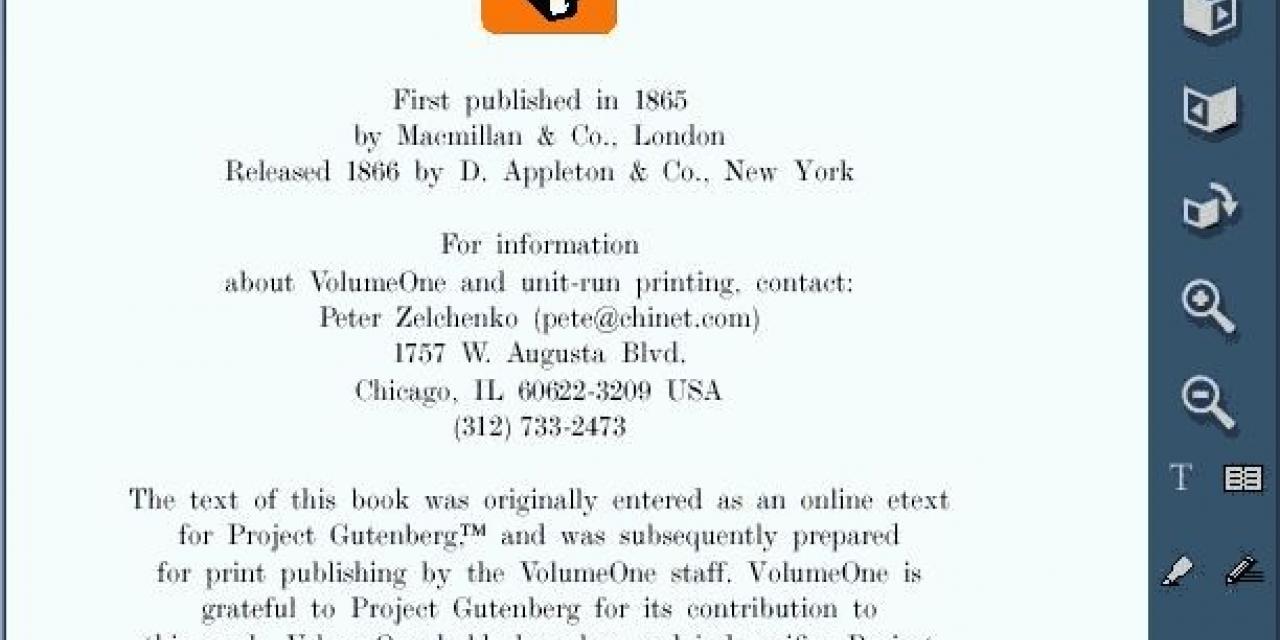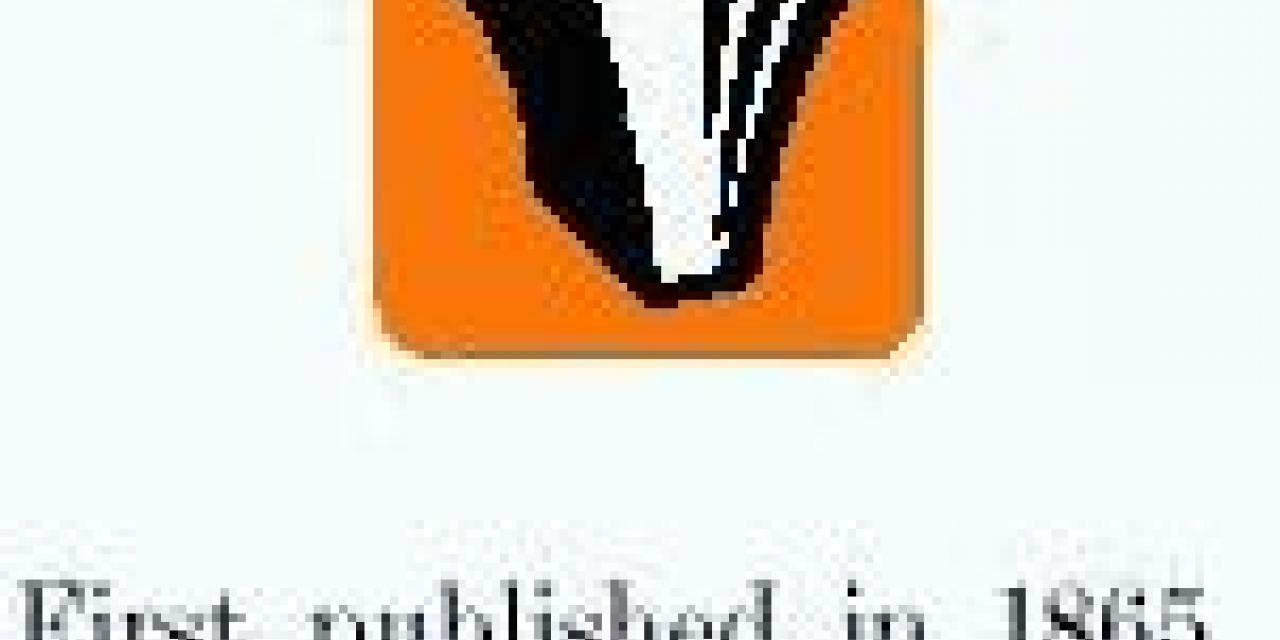



The example I am about to show you is quite atrocious. The posting points out the fine print in the licensing of Adobe's new e-book product Glassbook, a snapshot of which you will find below. Glassbook has taken a number of literary classics in the public domain and digitized them. They then put these restrictions on what they deem fair use. It is almost comical if not surreal:
Copy:
No text selections can be copied from the book to the clipboard.
Print:
No printing is permitted on this book.
Lend:
This book cannot be lent or given to someone else.
Give:
This book cannot be given to someone else.
Read Aloud:
This book cannot be read aloud.
According to Adobe, if you read Alice in Wonderland from their e-book to your son or daughter, you have violated their copyright. If you use shareware to copy a passage of it for your kids book report, you have committed a criminal act as now defined by the US Copyright Office.
Remember the student in Oklahoma whose dorm room was raided because he downloaded music from Napster? (see Oklahoma Student to be Sacrificial Lamb in MP3 Wars). He just recently plead guilty to a misdemeanor in that case so he wouldn't drive his family bankrupt in legal fees. In an effort to exert their self-proclaimed rights, oligopolies and self-interest groups like the Recording Industry Association of America (RIAA) look for individuals to be their "examples". People they ruin to scare off others and dictate their vision of right and wrong. A vision solely driven by the singular goal of increasing profit.
Want to hear the ultimate irony? Adobe pulled the transcription of Alice in Wonderland from Project Gutenberg, a library of electronically stored books, mostly classics that can be downloaded for free and viewed off-line. The goal is to make these books free and accessible to all people, specifically those who have limited access to these works. Adobe downloaded the books for free, repackaged it, and are stripping away the open permissions that Project Gutenberg already endowed upon you. The right to freely read and pass on fine literature because it will better the world.
See what we mean by self-proclaimed copyrights? Take what's in the public domain, plant a flag on it like it was the Oklahoma land rush, claim ownership for your company, make up your own restrictions, and take people to court if they don't pay up. This is what the implications of the US Copyright Office's recent decision have brought upon us.
Our advice? Start by doing the worst thing you can do to Adobe's new e-book - don't buy it. Then go to Project Gutenberg's site and download a few stories.








